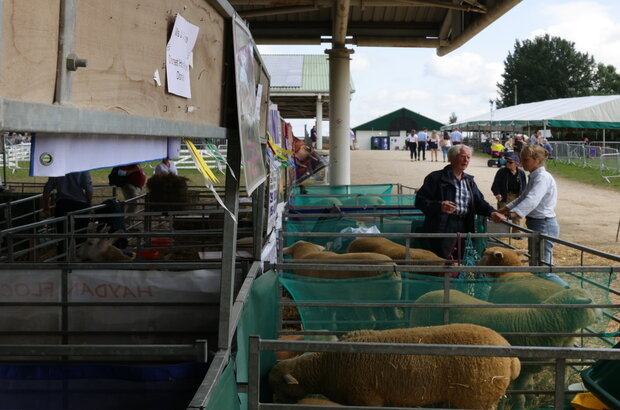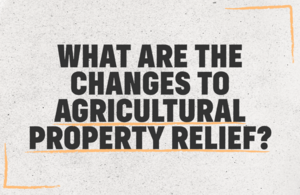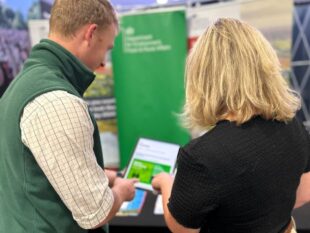
One goal of Defra’s Future Farming and Countryside Programme is to help farmers and land managers achieve bigger, better environmental benefits.
There’s a lot that farmers can do individually on their own land, but there are often circumstances where it makes more sense for several people or businesses to join forces and collaborate on something that benefits all of them, as well as the environment.
We want to encourage more collaboration like this.
To understand how to do that, we’ve been talking to farmers and land managers who are already collaborating, to find out what works for them, and what they would suggest for the future.
Different models for collaboration
There are lots of different models for collaboration. The following are just a few of the concepts we’ve heard about.
In Northumberland, the 23 Burns Collective of 52 farms have suggested creating a farmer-owned group to oversee joint environmental activities in the area. Under their proposals, the group would appoint a facilitator to support local farms; it would be jointly owned by local farmers, but perhaps co-funded by them and Defra. They thought that this would guarantee buy-in and accountability.
Members of the Barningham Estate Farmer Group in North Yorkshire took a different approach. They felt strongly that farmers are best placed to lead collaboration. Rather than bringing in an external facilitator, they suggest appointing a “lead” farmer from within the group.
Similarly, the Breckland Farmers Wildlife Network in East Anglia worked in self-managed “mini clusters” so they could look at how they could work with close neighbours. With the support of an adviser, each mini cluster reviewed maps of their farms to decide what to deliver and where. Most of the farmers found the mini cluster format helped them to have useful discussions with their neighbours.
Incentives for collaboration
Most farmers we spoke to said that funding would help make collaboration easier.
For example, the Breckland group supported the idea of a collaboration bonus. They thought that this would reflect the extra effort, time and resources needed for collaboration.
The 23 Burns Collective supported this idea, and suggested dividing payments into 3 parts:
- a base payment for undertaking the work
- a bonus payment if a farmer group can confirm that the work is delivering public goods
- a collaboration payment to reward farmers for coordinating work with others
Other tests and trials have suggested that improved access to capital works funding would be a strong incentive. For example, to cover costs such as hedging or walling work. The Barningham group felt that this was a bigger driver than the possibility of direct payments made for collaboration.
Incentives can help overcome blockers to collaboration
We’ve had lots of feedback about how difficult collaboration can be. Just because 2 farms are adjacent, that doesn’t mean that they share methods, business goals or even soil types and ground conditions. It’s hard to identify objectives that will work for everyone.
This is why incentives are helpful: they don’t just help cover the costs of collaboration, but they help individuals and businesses overcome the inconsistencies that make it hard to start collaborating in the first place.
There’s more to learn
This research isn’t finished yet. In the next few months we’ll continue exploring how some of these collaboration models could be used in different sectors and geographies.
We’ll also be going deeper into the detail, to understand how specific incentives could work and which model they might follow. As we learn more, we’ll let you know here on the blog.
Subscribe to the Future Farming Blog.




 The
The 
2 comments
Comment by sam alston posted on
The first 2 models of collaboration above , are different, no right or wrong way.
The second example, Barningham want a lead farmer, But I suspect the 23 Burns do too.
Both need leadership, both need advice, doesnt matter who gives it as long as its good advice, but even an adviser working for a group needs support and direction, so the old structures of chair person, group support to whoever, etc etc.still apply for the most part.
Lots of historic models from FWAG, NFU, and initiatives such as exampled here. including farmers with sound agri as well as env. knowledge BUT there needs to be enough folk on the ground that know what they are doing to both set up schemes, help those too busy or unclear to actually deliver whats needed, and certainly with cluster/collaborative working , it needs excellent advice and professionalism to make work. And ongoing handholding/ peer discussion throughout the projects evolution is essential
Currently there are not enough people on the ground with the skills required to understand farming, especially in the modern era, the challenges from all sides the industry faces, and with a good understanding of increasingly bigger and now becoming very complex environmental issues.
If this shortfall of professional ari/env expertise is not addressed, ELM will really struggle to deliver. You cannot expect many, if even few,busy land managers to understand this extremely complex landscape of new schemes and what issues are driving them
Local and landscape nature recovery startegies, so far anyway, are too wooly, lacking in local detail and not something land managers can easily relate to. And they dont appear to have tangible targets of whats wanted.
Comment by Sarah Stewart posted on
Hi Sam,
Thanks for taking the time to visit the blog and for your comment.
There are 3 similarly named initiatives. I wasn't sure which you were referring to, so I've covered all of them here.
The Local Nature Recovery scheme will empower land managers to build tailored agreements that help deliver our environmental priorities in a locally responsive way, factoring in the views of local people. The scheme will integrate with locally developed plans and other local environmental policy mechanisms, such as Local Nature Recovery Strategies, to ensure that the right environmental actions are delivered in the right places. The scheme will also encourage collaboration between land managers where this can deliver improved outcomes for the environment. We'll be publishing more info on that scheme in November.
There is currently a consultation running on the Local Nature Recovery Strategies. Anyone is welcome to share their views on the implementation of the strategies. Here is the link: https://consult.defra.gov.uk/land-use/local-nature-recovery-strategies/consultation/intro/
The Landscape Recovery scheme will support the delivery of landscape and recovery through long-term, land use change projects. They might include projects to restore wilder landscapes in places where that is appropriate, large-scale tree planting and peatland restoration projects. We recently held three Landscape Recovery online discussion sessions (you can watch them here on the blog: https://defrafarming.blog.gov.uk/2021/09/30/catch-up-on-our-landscape-recovery-information-sessions/ )and we're now thinking about the feedback we received, and we'll publish a post on that soon.
Together, the 3 environmental land management schemes (the Sustainable Farming Incentive, Local Nature Recovery and Landscape Recovery) will be an important step towards achieving our 25 Year Environment Plan ambitions and our carbon net zero goals.
Best wishes,
Sarah